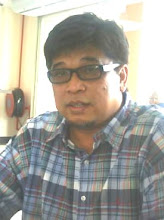 The power of the ballot
The power of the ballot Nov 26th 2009 | COLOMBO
From The Economist print edition
Suddenly, it matters what Tamils think
SHAKING the rain out of his hair, Ravi Chandran boarded a state-run bus for Jaffna in the north and looked around. It would leave Colombo soon, at 11.30pm, and he wanted to grab a good seat for what could be a 16-hour journey. Mr Chandran, a 27-year-old businessman in a rugby jersey and jeans, is among an estimated 3,500 commuters from Sri Lanka’s Tamil minority to have used the new bus service since the government eased travel restrictions earlier this month. Civilians taking public transport to Jaffna no longer need defence-ministry authorisation; just three copies of their national identity card will do.
Since the government’s victory in the long war with Tamil Tiger rebels in May, Tamils have chafed under travel and other restrictions. But an election looms, and President Mahinda Rajapaksa is lifting at least some of these. This week, he signed a proclamation authorising a presidential election in January. His main challenger is expected to be his former army commander, General Sarath Fonseka. So the loyalties of the Sinhalese majority will be split, and Tamil votes decisive.
 The government has already started courting them. On November 21st, after months of intense international pressure, the government announced that those displaced by the war will be free to move from December 1st, and that all of them will be resettled by the end of January. Of nearly 300,000 people interned in camps, almost half have already been ferried back to their war-shattered villages.
The government has already started courting them. On November 21st, after months of intense international pressure, the government announced that those displaced by the war will be free to move from December 1st, and that all of them will be resettled by the end of January. Of nearly 300,000 people interned in camps, almost half have already been ferried back to their war-shattered villages.
Like others clambering on the Jaffna bus this week, Mr Chandran was happy that mobility between the mainly Sinhalese south and the mostly Tamil north is increasing. But what should be a simple ten-hour trip home remains dogged by delays, checkpoints and intense security.
During a meeting with newspaper editors this week, Mr Rajapaksa presented his decision to go to the polls early as a sacrifice of two years of his term rather than as a shrewd move to capitalise on victory in the war. He said he wanted to allow voters in the north and east the chance to select a president. At the latest election in 2005, in which Mr Rajapaksa squeaked home by fewer than 200,000 votes, the Tigers ordered a boycott of the poll in Tamil areas.
Still, Tamils are not likely to fall for Mr Rajapaksa’s claim, or for the small, calculated steps the government is taking to win their votes. Niranjan Ganeshathasan, a law student, agrees that Tamils will swing the vote in January but he would much rather see the repeal of draconian anti-terrorism legislation, an acceptable power-sharing arrangement, and a truth-and-reconciliation commission to investigate what happened in the last weeks of the war. Mr Rajapaksa, he insists, will have to try harder, merely to entice apathetic Tamils to vote at all.
.png)












